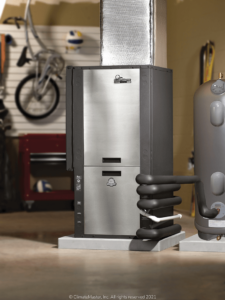In an era defined by environmental awareness and sustainable living, geothermal heat pump systems have emerged as a frontrunner in the quest for eco-friendly heating and cooling solutions. This comprehensive guide will delve into the inner workings of geothermal heat pump systems, their impact on the environment, maintenance essentials, installation costs, available tax credits, and the nuanced pros and cons. Whether you're exploring "Geothermal heat pump repair near me" or "Geothermal Service near me," this blog aims to equip you with the knowledge you need to make an informed decision.
How Geothermal Heat Pump Systems Work
Geothermal heat pump systems, also known as ground-source heat pumps, harness the Earth's natural temperature stability beneath the surface to provide efficient heating and cooling for residential and commercial spaces. These systems operate through a cyclical process:
1. Heat Exchange: A loop of pipes containing a heat transfer fluid (often water with antifreeze) is buried underground, either horizontally or vertically, based on space and geological factors.
2. Heat Absorption: During heating, the fluid extracts heat from the ground as it circulates through the underground loop. Conversely, during cooling, the system transfers heat from the building into the ground.
3. Heat Pump: Inside the building, a heat pump unit compresses the extracted heat and releases it into the indoor space for heating or removes indoor heat for cooling.
4. Distribution: Conditioned air is distributed via ductwork or radiant floor systems to maintain a comfortable indoor environment.
This seamless process ensures consistent temperature control year-round.
Environmental Impact
The environmental benefits of geothermal heat pump systems are substantial:
1. Reduced Carbon Footprint: Geothermal systems produce fewer greenhouse gas emissions, contributing significantly to mitigating climate change.
2. Enhanced Energy Efficiency: These systems can achieve efficiencies of up to 400%, minimizing energy consumption and reducing utility bills.
3. Resource Conservation: Geothermal systems decrease the reliance on finite fossil fuels, conserving precious natural resources.
4. Lower Operating Costs: By utilizing renewable geothermal energy, these systems result in reduced energy expenses over time.
Maintenance
To maintain the efficiency and lifespan of your geothermal heat pump system, regular maintenance is essential:
1. Routine Inspections: Frequent inspections of the heat pump, ground loop, and heat transfer fluid are crucial.
2. Fluid Level Checks: Monitor and maintain heat transfer fluid levels and quality.
3. Electrical System Oversight: Ensure all electrical components are in proper working order.
4. Geothermal Heat Pump Repair: If issues arise, promptly seek "Geothermal heat pump repair near me" to address problems and maintain system functionality.
5. **Annual Professional Service:** Schedule an annual service with a nearby "Geothermal Service near me" for comprehensive inspections and maintenance.
Installation Costs and Tax Credits
While the initial installation cost of a geothermal heat pump system may appear higher than traditional HVAC systems, it's essential to consider long-term savings and environmental benefits. Installation costs vary depending on factors like system size, soil conditions, and location. Government incentives, such as tax credits, can offset these costs. For instance, in the United States, homeowners can benefit from the Federal Residential Renewable Energy Tax Credit.
Pros and Cons
Pros:
1. Energy Efficiency: Geothermal systems are highly efficient, leading to substantial energy savings.
2. Environmental Advantages: They reduce carbon emissions and dependence on fossil fuels.
3. Longevity: With proper maintenance, these systems can last for decades, ensuring a reliable heating and cooling solution.
4. Quiet Operation: Geothermal heat pumps operate quietly compared to traditional HVAC systems, enhancing indoor comfort.
5. Reduced Maintenance: Fewer moving parts result in less maintenance compared to conventional systems.
Cons:
1. Initial Cost: The upfront installation cost may be higher, although it pays off through long-term savings.
2. Space Requirements: Geothermal systems need space for the ground loop, which may not be feasible for all properties.
3. Installation Complexity: Installation can be more complex than traditional systems and should be performed by experienced professionals.
4. Awareness: Many homeowners are unaware of geothermal system benefits and may not consider them as an option.
Importance of Experienced Contractors
Selecting a contractor experienced in geothermal maintenance, repair, and replacement is paramount for optimal system performance. An experienced contractor can:
1. Ensure Proper Installation: They install the ground loop and heat pump correctly, maximizing system efficiency.
2. Swift Issue Resolution: Expert contractors can diagnose and repair problems efficiently.
3. Offer Regular Maintenance: They provide routine maintenance to keep the system in peak condition.
4. Navigate Regulations: Experienced contractors understand local permitting and environmental regulations related to ` geothermal systems.
Geothermal heat pump systems offer a sustainable, energy-efficient solution for heating and cooling needs. With their lower environmental impact, long-term cost savings, and reliability, they are an ideal choice for eco-conscious homeowners. However, proper maintenance and the selection of an experienced contractor for installation, maintenance, repair, and replacement are paramount.
Whether you're exploring "Geothermal heat pump repair near me" or "Geothermal Service near me," ensure that you choose a contractor with the expertise needed to maximize the efficiency and longevity of your geothermal system. Make an environmentally responsible choice today and unearth the benefits of geothermal heat pump systems.


